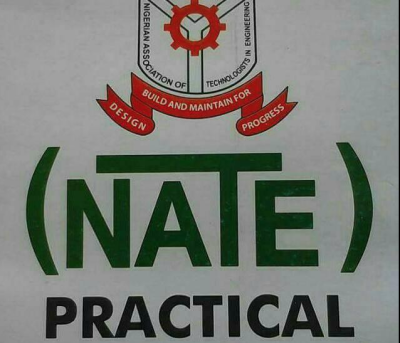The National Association of Technologists in Engineering (NATE) has made a significant appeal to President Bola Tinubu, urging him to assent to the bill that seeks to abolish the longstanding dichotomy between holders of Bachelor of Science (BSc) and Higher National Diploma (HND) qualifications in the field of engineering. This bill, which has already passed through all necessary stages in the National Assembly, now awaits the final approval, or assent, from the president.
Context and Importance of the Bill
The BSc and HND dichotomy has been a longstanding issue in Nigeria, particularly in the field of engineering, where individuals with an HND have historically faced discrimination in terms of career progression and recognition compared to those with a BSc degree. This differentiation has had significant impacts on the career trajectory and professional recognition of many engineering technologists in Nigeria.
Dominic Udoatan, the National President of NATE, emphasized that one of his key goals upon assuming leadership of the association six years ago was to advocate for the elimination of this academic distinction. According to Udoatan, the successful passage of the bill through the National Assembly marks a major milestone in the pursuit of this objective. The bill now sits in the hands of President Tinubu, and Udoatan has appealed for a swift and positive decision to help reshape the landscape of engineering education and career progression for technologists in the country.

Speaking at NATE’s National Conference and Annual General Meeting (AGM), Udoatan remarked that the bill’s passage would eliminate the academic distinction between BSc and HND holders, which has been a source of inequality within the profession. He noted that the bill’s approval would not only enhance the status of HND holders but would also promote a more inclusive and fair career progression path for technologists in the Nigerian engineering sector.
“We are in synergy with COREN (Council for the Regulation of Engineering in Nigeria) and the Nigerian Society of Engineers (NSE), and we are following up on this issue legally, legislatively, and administratively. We hope that in no distant time, the dichotomy will be a thing of the past,” Udoatan declared.
NATE: Broader Implications for Career Progression
Udoatan also raised another critical issue—the current classification system for engineers in Nigeria, particularly with regard to career progression. At present, individuals with qualifications such as the National Diploma (ND) are categorised under the “technical cadre,” primarily meant for technicians. However, this system does not adequately reflect the qualifications and expertise of higher-level technologists who hold HNDs and similar qualifications.
In his address, Udoatan called on the federal government, as well as the Head of Service of the Federation, to consider the inclusion of the technological cadre within the federal government’s scheme of service. This would allow engineering technologists to progress beyond the current ceiling of salary grade level 14, which is the limit for those in the technical cadre. NATE’s leaders believe that without such reforms, the potential of highly trained and qualified engineering technologists will continue to be underutilized.
Advocacy for Expanded Recognition and Registration
Further supporting the push for greater recognition of technologists, Udoatan revealed that NATE had submitted a memo to relevant authorities, seeking the inclusion of qualifications like B.Tech Education, Higher National Certificate (HNC), and other HND-equivalent credentials for corporate membership registration with both NATE and COREN. If approved, this proposal would allow more engineering technologists to become officially recognized and registered as professionals, enhancing their ability to participate in corporate membership and further contributing to the development of the engineering sector.

“The successful implementation of this appeal will broaden our scope and enhance our capacity as a professional body,” Udoatan added.
Leadership Changes at NATE
In addition to the call for the president’s assent to the bill, NATE also held elections during its national conference and AGM, which saw the return and election of several key officials. Dominic Udoatan, who has been a steadfast advocate for the elimination of the BSc and HND dichotomy, was returned unopposed as the National President of the association.
The elections saw the following individuals elected to key positions:
- Mahmud Hussaini was elected National Deputy President.
- Reuben Maisamari was returned unopposed as the Vice-President for the North-East.
- Mohammed A. Bala was elected unopposed as Vice-President for the North-East, while Gotom Daniel was elected Vice-President for the North-Central.
- Tokede Sunday was elected as Vice-President for the South-West.
- Chidi Dimkpa was elected as Vice-President for the South-South.
- Peter N. Ekenachi was elected as Vice President of the South-East.
- Ibidapo S. Kayode was elected as National General Secretary.
- Ijeoma Obiora was elected as National Treasurer.
- Abdulkareem Gbadebo was elected as the internal auditor.
- Faruk Nataala was elected Assistant Public Relations Officer.
- Bariakwaadoo Bere was elected as Assistant Secretary.
These new and returning officials will work together to continue advocating for the welfare and professional advancement of engineering technologists in Nigeria, with a particular focus on pushing forward NATE’s core objectives, including the abolition of the BSc-HND dichotomy.
Conclusion
The appeal made by NATE to President Tinubu underscores the critical need for reform in the engineering sector to address long-standing disparities between qualifications and career progression.
The successful passage of the bill and the inclusion of technological cadres in the scheme of service will significantly improve the professional standing of HND holders and engineering technologists in Nigeria. NATE’s leadership, under the guidance of its newly elected officials, remains committed to advancing these causes, which they believe will have a lasting positive impact on the engineering profession and the broader technological development of Nigeria.









